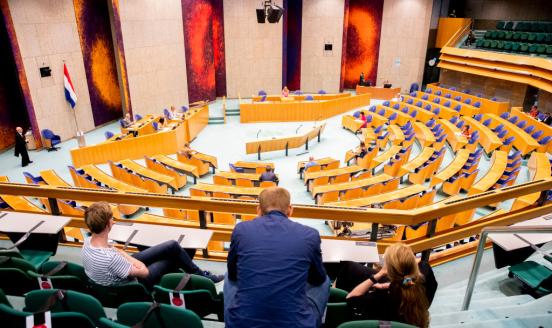Europe’s banks need to be recapitalised – now
Europe’s growth performance was disappointing before the financial crisis. It has been dismal since. Five years into the “great recession”, the r
Europe’s growth performance was disappointing before the financial crisis. It has been dismal since. Five years into the “great recession”, the risk for Europe is to remain trapped in stagnation. Vicious circles are apparent across the continent: weak growth undermines deleveraging and fuels banking fragility. Persistently high unemployment erodes skills and undermines Europe’s growth potential. Low overall growth makes it much harder for the hard-hit economies in southern Europe to recover competitiveness and regain control of their public finances. Stagnation reduces the attractiveness of Europe for investment. Under these conditions, Europe’s social models are bound to prove unsustainable.
Why is this so?
Structural weaknesses are part of the explanation. But Europe also made two mistakes in responding to the crisis. First, it failed to recognise the true extent of its banking problem. It believed – or pretended to believe – that the guarantees and recapitalisations of 2008-2009 had addressed the issue whereas weaknesses were in fact much more widespread. Second, it failed to appreciate that excessive private-sector debt was not just an American problem. In Europe too many households and companies needed to deleverage.
The European mantra – structural reform and fiscal consolidation – was and remains correct. But a still-dysfunctional financial system and an overleveraged private sector made the eurozone unable to reallocate resources, engender productivity and sustain demand. Add relative price rigidity in the euro area and the picture is complete: the medicine may be the right one, but the patient is not yet fit to really benefit from it.
How does Europe get out of this predicament?
Comprehensive action is needed to break the mutually reinforcing links between limited productivity, slow deleveraging, weak banking sectors and distorted relative prices.
The first priority is financial repair. Banks with weak balance sheets lend on too expensive terms or lend to insolvent borrowers to keep them afloat and do not grant credit to new firms. This prevents profitable investment and the growth of new, more efficient firms. A comprehensive bank balance sheet assessment is needed. For those that would take part in this assessment, the introduction of the Single Supervisory Mechanism, the first element of the European banking union, offers a opportunity. The ECB should not and will not accept undercapitalised – let alone insolvent – banks to fall under the common supervision. National authorities therefore have to initiate a recapitalisation of undercapitalised banks and a resolution of the insolvent ones. The moment is now. When public money is needed, the European Commission should exclude it when making decision on excessive deficits.
Even before the repair is completed, action is needed because the monetary policy transmission mechanism in the eurozone is impaired in some countries, further limiting credit supply. Significant haircuts on collateral in the repo operations that underpin the provision of central bank liquidity limit the willingness to provide credit to small firms. This limitation has a particular importance in the current low-growth environment and needs temporary but forceful action. The ECB alone cannot solve the problem because it has a fiscal dimension. The EU should explore temporary collateral enhancement schemes, for example, in liaison with the European Investment Bank.
The second priority is to balance private and public deleveraging. This requires an appropriate speed of fiscal adjustment, one that is adapted to the context of stagnating economies. Where consolidation is needed – that is, in most countries – there is a case for spreading it out over a longer period, provided governments can credibly commit to future action. One way is to legislate now for the years to come, for example on far-reaching pension reforms. Another is to use the EU fiscal framework as a credible commitment device. More needs to be done to prevent fiscal retrenchment in the south of Europe from further dampening economic activity and increasing social hardship, ultimately undermining economic and political stability. Up-front payments from existing EU convergence funds and increased EU-supported investments would be a good way to help address demand weaknesses.
The third set of measures should aim at addressing the differences of competitiveness acorss eurozone countries; a problem that was in place before the crisis. Structural reforms are of central importance to increasing long-term productivity and need to be continued vigorously. The EU should provide incentives to addressing weaknesses in product, labour and capital markets as well in skills. It should explore new approaches, including, contractual budgetary support in specific policy areas. Nevertheless, within the eurozone, wage rebalancing should involve northern Europe as well as southern Europe. Consistent with the ECB mandate, average inflation in the eurozone should be close to the 2 per cent target yet inflation expectations have fallen to well below that. Northern Europe should refrain from domestic policy action that would prevent domestic inflation from rising above 2 per cent, as long as eurozone price stability remains ensured.
The solution to Europe’s economic problem is neither stubborn persistence nor a U-turn. It is not to add a new policy procedure to the many existing ones. It is to recognise the true nature of the challenge it is facing and to adopt a more comprehensive approach.
This comment is based on the Bruegel paper ‘Europe’s growth problem (and what to do about it)‘.



